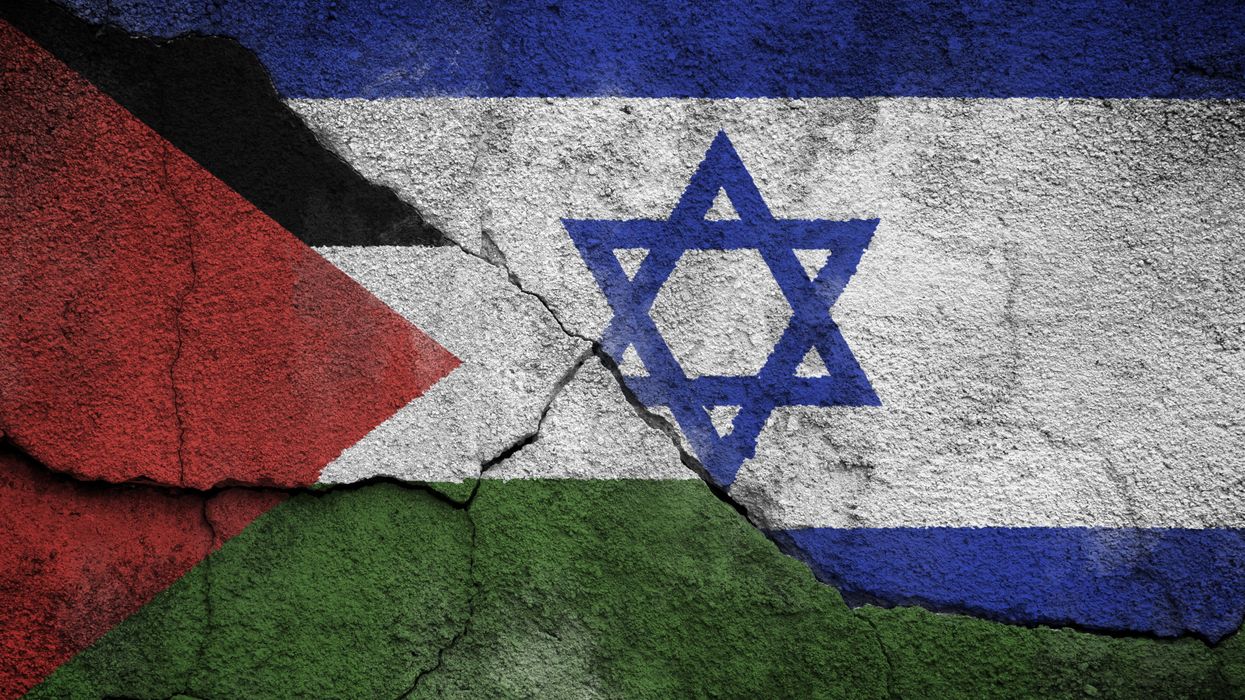Anderson edited "Leveraging: A Political, Economic and Societal Framework" (Springer, 2014), has taught at five universities and ran for the Democratic nomination for a Maryland congressional seat in 2016.
The conflict between Israel and the Palestinians is among the most complex conflicts in the world today – and in the history of the world. The war launched by Hamas against Israel, the latest piece of the ongoing Israeli-Palestinian conflict, is immensely complicated, notably because Hamas militants have used Palestinian citizens, especially women and children, as shields.
The Israeli-Palestinian conflict is rooted in rival conceptions of what happened when the Middle East was reshaped after World War I followed by the events of 1948, when Israel issued its Declaration of Independence and six Arab countries attacked the new nation. The roots go even deeper – all the way back to ancient times.
Any resolution of the conflict would have to deal with many issues, including the abundance of Israeli settlements in the West Bank, the status of Jerusalem, the governance of Gaza after the current war and of course the very question about whether Palestinians will get a homeland.
There are two things that must happen for any resolution to be possible. They are the most basic impediments that have prevented peace for generations, one applying to Israel and one applying to the Palestinians. Israel must recognize that the Palestinians have a right to exist and to a homeland, and some group of Palestinians with a degree of authority must recognize that Israel has a right to exist and to a homeland. Both sides tried this approach with the Letters of Mutual Recognition in 1993, but the Oslo Accords were never implemented.
Israel already has a homeland, and thus the question here would be whether any parts of Israel need to be given to the Palestianians. The Palestinians do not have a state that is recognized by Israel and many other countries (although some land is recognized as Palestinian by the United Nations, notably the West Bank and Gaza).
Hamas, which represents Palestinians in Gaza, stands for the annihilation of Israel (as does Iran), although the Palestine Liberation Organization has gone back and forth on the position of seeking to annihilate Israel. Israel does not recognize a Palestinian state yet since 1947, with the United Nations Partition, it has frequently affirmed the right of Palestinians to have their own state.
The Palestinian position (and Iran's position), at least from the standpoint of Hamas, is a much more difficult obstacle to overcome because it is so extreme. Even Adolf Hitler did not stand for the annihilation of the countries (or all the citizens of those countries) he was fighting, notably France, England, Russia and the United States. He wanted territory, natural resources and naked power. What Hitler did stand for was the annihilation of the Jews, and he led an effort that killed two-thirds of the Jews of Europe.
There are a considerable number of Palestinians and Israelis (who count 2 million Arabs, mostly Palestinians, among their population) who want either a two-state solution or a confederation solution. Moreover, many major world powers, including the United States, Russia, China and a number of European nations, are also advocating for some form of a two-state solution.
It must be emphasized that there are not "two sides" in this conflict in any clear sense of the term, both because the Palestinians are divided and because Hamas, which has governed Gaza since 2007, is not governing it now. Moreover, Benjamin Netanyahu’s Israeli government, which many regard as extremist, could be replaced in the near future.
Thus the process of achieving peace over the next few years – especially with the United States and some Arab countries, notably Qatar, acting as brokers – is a very fluid situation. It is not even clear if Hamas or the Netanyahu government would be at the table when peace was achieved, let alone when monitoring would follow a peace deal.
However the politics evolves, it is still the case that the fundamental problem in the Israeli-Palestinian conflict is that both sides must recognize each other's right to have a homeland. Israel has been more consistent over the years in doing just this, but the Netanyahu years have been subject to international criticism for promoting policies that do not promote conditions for Palestinians to have their own state, notably a massive build up of settlements in the West Bank.




















Trump & Hegseth gave Mark Kelly a huge 2028 gift